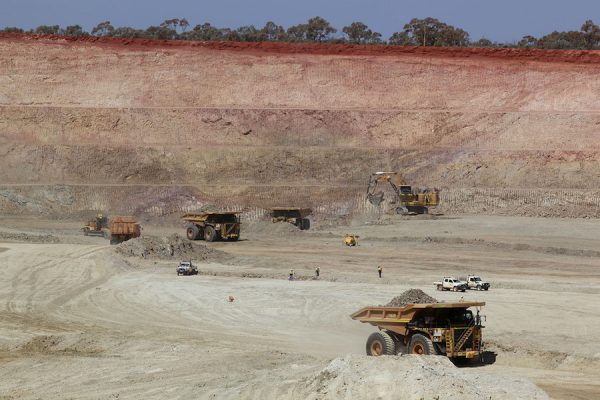Yet another foreign miner in the Democratic Republic of Congo is reviewing its future production plans after the government increased taxes and removed investor safeguards despite industry protests.
MMG Ltd., the Chinese-owned copper producer, is considering whether to invest in more expensive methods of mining the metal when existing oxide resources are depleted. It’s grappling with the same quandary facing units of Glencore Plc and Eurasian Resources Group Sarl, which have either downsized or suspended activities at copper-cobalt mines in the central African nation as they challenge the new mining code.
The revised mining code signed into law last March by former President Joseph Kabila canceled a clause that would have protected producing mines against fiscal changes for another decade
Congo ranks alongside the U.S. as the world’s fourth-biggest copper producer and the largest source of cobalt — both key metals in the rapidly expanding renewable-energy industry. Changes to supply in Congo have the potential to impact the commodities’ prices, which have both declined in the past year — cobalt because of a supply glut and copper because of concerns that a trade war between the U.S. and China would dent demand.
At MMG’s Kinsevere project, reserves of easier-to-refine oxide ores are being run down and the project’s owners are studying the viability of building processing facilities to exploit their remaining sulfide deposits — a more expensive exercise. The mine, along with Glencore’s Mutanda Mining and ERG’s Boss Mining, is located in the Katangan copper-belt in southeastern Congo.
Oxide operations at Kinsevere, which produced 80,000 tons of copper last year, are scheduled to last until 2024. MMG is “evaluating the right path to extend the life” of the mine by up to 10 years through drilling to expand the oxide resource and weighing up mining sulfide ores present in the deposit, spokeswoman Andrea Atell said in an emailed response to questions.
The revised mining code signed into law last March by former President Joseph Kabila canceled a clause that would have protected producing mines against fiscal changes for another decade. The modified law presented an unexpected factor to consider for the boards of the three companies.
MMG has been studying the development of Kinsevere’s sulfide resources since well before the code was revised, but aspects of the legislation “have the potential to impact current and future investment decisions,” according to Atell. The reforms have reduced “the probability of approving the development of new facilities to treat the sulfide reserves” at Mutanda, Glencore said in its 2018 results report.
Code changes
While MMG forecasts similar production levels this year as last, Boss and Mutanda have already taken action as their oxide reserves dwindle. Both cut their workforces this year as they contemplate investment decisions, while the former has halted production and the latter will halve its copper output.
MMG and Glencore are among a group of miners hoping to encourage Congo’s new president, Felix Tshisekedi, to modify the mining code, but have not ruled out launching international arbitration to recover their 10-year investor protections. MMG said last month there will likely be an impairment to Kinsevere if “negotiations and any legal actions are unsuccessful,” while Glencore has already written down Mutanda’s value by $600 million, blaming the larger tax burden.
MMG said last month there will likely be an impairment to Kinsevere if ‘negotiations and any legal actions are unsuccessful’ while Glencore has already written down Mutanda’s value by $600 million, blaming the larger tax burden
All three projects produce copper, while Mutanda and Boss also mine cobalt, a key ingredient in rechargeable batteries used in electric vehicles. The Glencore subsidiary was Congo’s largest source of both metals last year, exporting 199,000 tons of copper and 27,000 tons of cobalt.
The tax changes “that came in so sweepingly have meant the investment case has become more challenging in an already challenging environment” for miners, Caspar Rawles, an analyst at Benchmark Minerals, said.
Mining accounts for about 90 percent of Congo’s meager export revenue and the slowdowns at Mutanda and Boss Mining will hit public finances. The impact will be longer term and dramatic if Glencore, ERG and MMG decide not to extract the sulfide reserves.
Congo collected $1.57 billion of revenue from mining companies last year, almost double the previous year, mostly in profit tax and royalties — with Mutanda and China Molybdenum Co.’s Tenke Fungurume mine contributing the most._Bloomberg News





